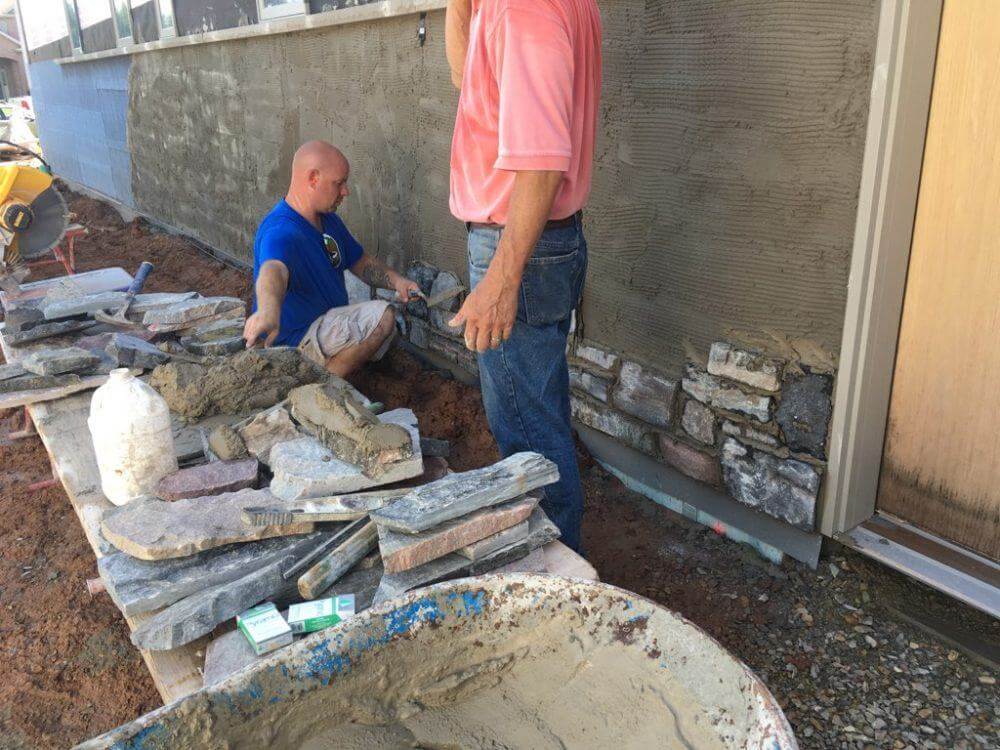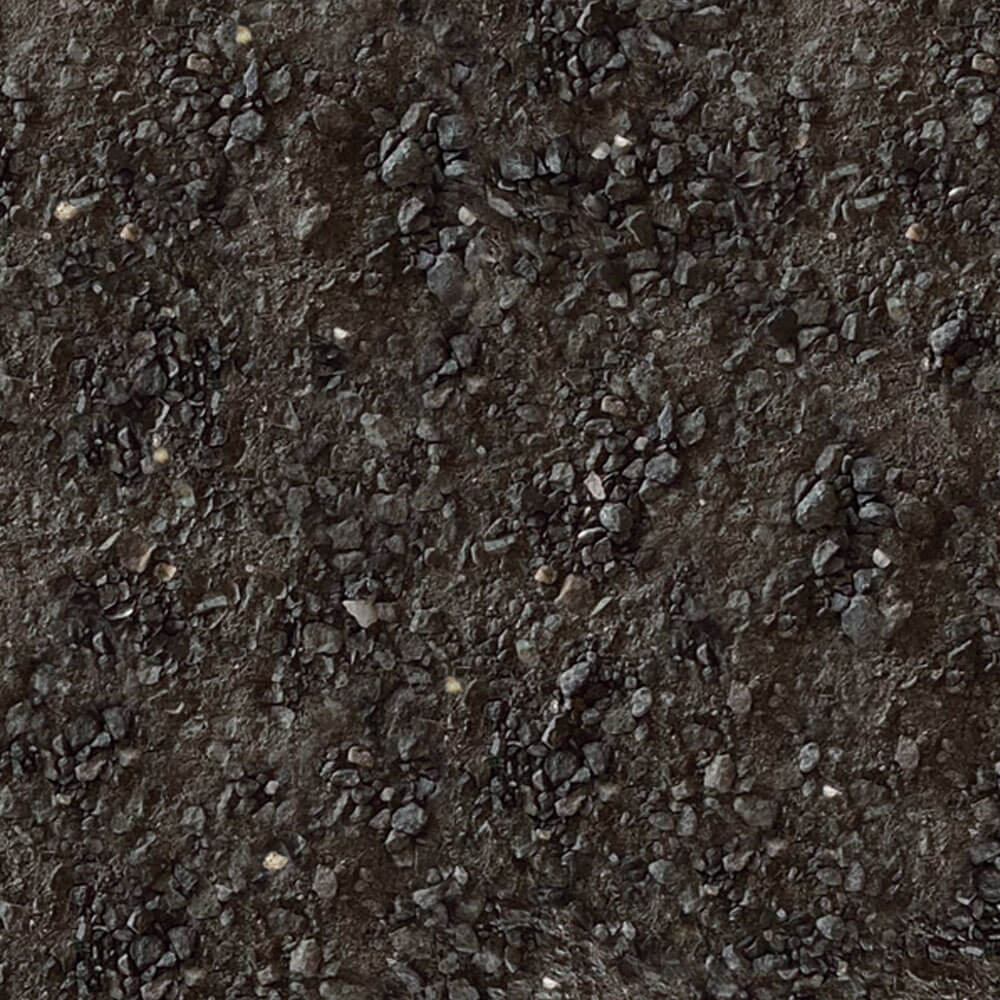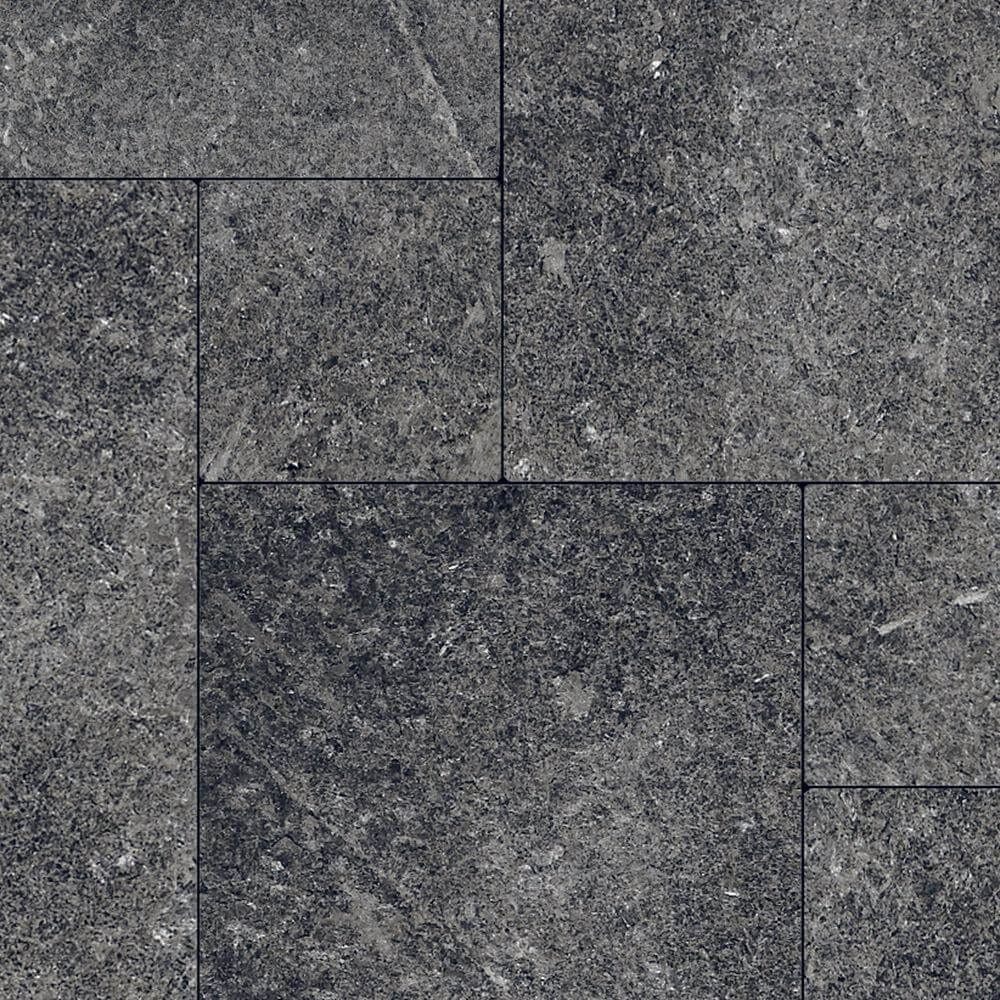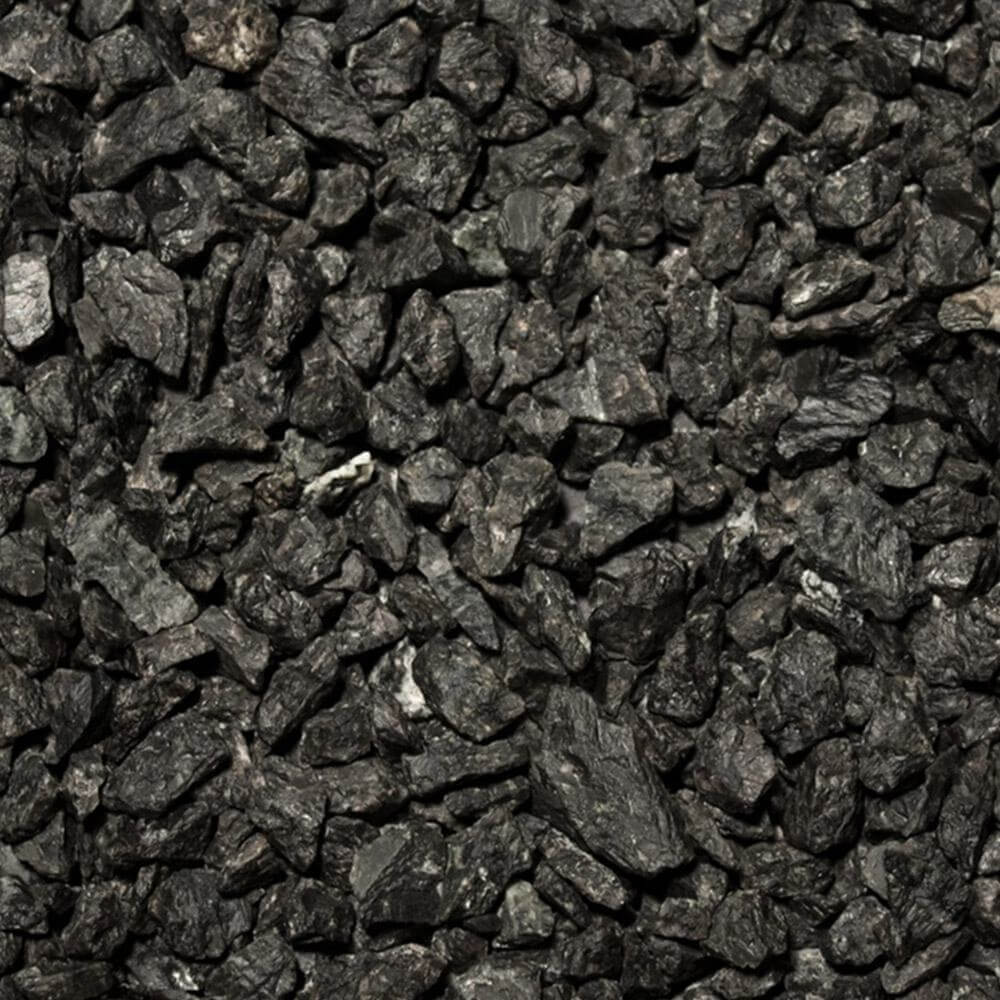Whether you’re a designer, builder, masonry professional, or even a homeowner exploring the possibility of including natural stone in an exterior or interior project, you probably know that mortar is the “glue” that holds masonry units together, binding building blocks, filling the joints between them, and providing structural support. This workable paste consists of different amounts of hydrated lime, Portland cement, and sand combined to create a mix that meets certain requirements. There are five official types of mortar: M, S, N, O, and K, all of which are classified according to their bonding properties, flexibility, and compressive strength.
So, how do you choose the right mortar mix for your project? First, think about the masonry products you’re installing. Kafka Granite’s natural thin stone veneer, for example, will lend a unique look to your project—but what goes under and around this product matters just as much as what you see on the surface. Without the right type of mortar, your project will crumble quickly. We’ve created a quick guide to mortar characteristics and some of the most popular types of mixes in order to help you select the best option.
Characteristics of Mortar
Before choosing a mortar type to use, it’s crucial to understand the structural requirements of a project. What type of building material will be used? What elements will an exterior structure need to withstand? Once you understand exactly what you need out of your bonding materials, you can select a mortar type based on the following properties.
Bonding Properties
Mortar adheres to building units, working to keep them together. Bond strength is measured by the force required to break the bond between the hardened mortar and that unit. A high-tensile bond strength is ideal for exterior projects that need to hold up to the elements.
Extent of bond is another key characteristic that should be taken into account. This property involves the amount of surface contact between the mortar and the thin stone veneer or other masonry unit. Mortar with a good extent of bond will be durable and resistant to water penetration.
Flexibility
Masonry units will crack if exposed to movement caused by moisture, settling, and other forces. The last thing you want is to watch your build fail after completing it. That’s where mortar comes in—to flex and absorb that movement, protecting the structural integrity of the project. Different types of mortar boast varying degrees of flexibility, and the right mix will depend partly on the material that you choose to utilize in your project.
Compressive Strength
Compressive strength is important for a number of reasons. While the mortar needs to be strong enough to maintain the structural integrity of the installation, you’ll need to select a mortar with a compressive strength less than that of the stone you’re installing. If you choose a mortar with a higher compressive strength than that of your masonry units, you may find yourself with cracked components and exterior projects eventually worn away by the freeze-thaw cycle.
Color
While physical characteristics may take a backseat to structural elements, the color of your mortar is still an important consideration. While mortar is generally thought of as the glue that holds your project together, it won’t just be on the backs of your thin stone veneer units—when properly applied, the mixture should ooze between the units, filling gaps and remaining visible. In fact, mortar can account for up to 15 percent of what you see when looking at your complete project. So although the hue won’t affect your mortars effectiveness, it will impact the finished look.
Mortar typically comes in neutral colors such as white, buff, and light or dark gray, but it can also be tinted to match a variety of shades. You might choose a hue that blends in with your thin stone veneer units, one that pulls out certain shades of your natural stone, or one that offers a stark contrast. If you’re working on a project that will be exposed to the elements, keep in mind that lighter mortar will show dirt and grime more easily than a darker color.
The Most Popular Mortar Types
Type N
If you’re looking for a reliable, general-purpose mix, type N mortar might be the winner. This mortar mix has a medium compressive strength and consists of 1 part Portland cement, 1 part lime, and 6 parts sand. It typically achieves 28-day strength at approximately 750 psi.
Kafka Granite’s masonry experts recommend type N mortar for use on exterior and above-grade projects that are exposed to severe weather and high temperatures, as well as on interior, load-bearing installations. Type N is also the preferred mortar mix for soft stone masonry as its flexibility helps to prevent cracks in the stones that stronger mortars might actually cause.
If you’re a homeowner or designer searching for the right mortar mix, you’ll find type N is the best choice for general application and likely the ideal choice for your project.
Here are some ideal projects that call for type N:
- Soft stone masonry
- Exterior or interior above grade walls
- Chimneys
- Repointing newer brickwork
Type S
When it’s time for something a little (or much) stronger, builders turn to type S mortar. A high-tensile bond strength and a high compressive strength of over 1,800 psi sets this mix apart and makes it ideal for a wide range of projects at or below grade. And that 1,800 psi is just the minimum compressive strength—builders often mix type S for strengths between 2,300 and 3,000 psi.
These significant bond and compressive strength numbers make type S able to withstand forceful soil pressure, wind, and seismic loads. Because of these unique properties, type S is the go-to for many below-grade applications such as masonry foundations and sewers as well as many at-grade projects.
Here are some projects that are best suited to type S:
- Exterior Masonry
- Brick patios
- Masonry foundations
- Sewers
- Manholes
- Retaining walls
- Various repair projects
- Planter construction
Type M
With the highest amount of Portland cement in its makeup, type M mortar mix provides at least 2,500 psi of compressive strength. While this mix is ideal for heavy loads and below-grade applications such as foundations, it provides relatively poor adhesion and sealing properties. This makes it poorly suited to many exposed applications.
Here are some suitable applications for type M:
- Foundations
- Retaining walls
- Driveways
Find the Perfect Thin Stone Veneer for the Job with Kafka Granite
Depending on the type of thin stone veneer you’ve chosen to install, type N or S mortar will fit your needs beautifully. But mortar is the (relatively) easy part. The true task is picking the perfect cut and color of thin veneer to use in your project. Kafka Granite’s natural thin stone veneer is a line of natural granite, quartz, and marble building stone suited to a variety of applications from building facades to fireplaces.
We can’t wait to be a part of making your next project truly stunning. Reach out today with any questions, and our knowledgeable sales team will provide the information, samples, and expertise you need to get started. Whether you’re a designer, builder, masonry professional, or even a homeowner exploring the possibility of including natural stone in an exterior or interior project, you probably know that mortar is the “glue” that holds masonry units together, binding building blocks, filling the joints between them, and providing structural support. This workable paste consists of different amounts of hydrated lime, Portland cement, and sand combined to create a mix that meets certain requirements. There are five official types of mortar, all classified according to their bonding properties, flexibility, and compressive strength.




